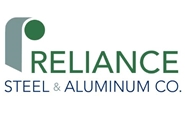Market Segment

April 26, 2018
Record Quarter for Reliance Steel & Aluminum
Written by Sandy Williams
Reliance Steel & Aluminum reported record sales of $2.47 billion and record shipments of 1.6 million tons in the first quarter of 2018.
“The positive pricing and demand fundamentals experienced in the fourth quarter of 2017 continued through the first quarter of 2018, with pricing momentum building throughout the quarter,” said President and CEO Gregg Mollins. “Our strong gross profit margin of 29.7 percent, along with our record sales, generated the highest quarterly gross profit dollars in our company’s history of $819.9 million.”
Metals pricing remained strong in the first quarter resulting in a 5.6 percent jump in the average selling price compared to the fourth quarter, said Mollins. “Strong demand, along with anticipated Section 232 actions, drove higher metal pricing on nearly every product we sell. We experienced a limited amount of pre-buying activity from certain of our customers as a result of the rapid price increases throughout the quarter and concern about metal availability.”
Demand continues to improve across all key markets including automotive in Mexico. Although Reliance maintains its own trucks for shipments, Senior Executive Vice President and CFO Karla Lewis noted significant increases in freight expenses.
Jim Hoffman, Executive Vice President and COO, noted that lead times are extended well into the summer months. Reliance was able to pass a portion of announced price increases on to customers before receiving higher priced inventory. Carbon prices are expected to continue to rise in Q2 but at a slower rate of increase than first quarter. Gross profit margins are expected to compress as higher priced metals are received into inventory.
“We have always said when prices are higher that’s a good thing for Reliance,” said Hoffman during the earnings call. “I personally think that prices are not out of line. They have actually climbed to where they always should have been.”
Mollins said most Reliance customers are unconcerned by the May 1 tariff deadline since they are smaller buyers. Reliance has been getting some inquiries from the West Coast from companies that haven’t been able to get the steel imports they rely on.
The company recently acquired DuBose National Energy Services, Inc. and DuBose National Energy Fasteners and Machined Parts, Inc. The environment is very robust for acquisition opportunities right now, said Mollins.
Reliance carbon steel sales in the first quarter totaled 1.27 million tons. Average selling price for carbon steel increased 6.3 percent from the fourth quarter and 10.5 percent from a year ago. Average selling price for all tons sold was $1,724, up 5.6 percent from Q4 and 10.3 percent higher than in Q1 2017. Reliance inventory turnover was a comfortable rate of 4.5 times, the company said.







